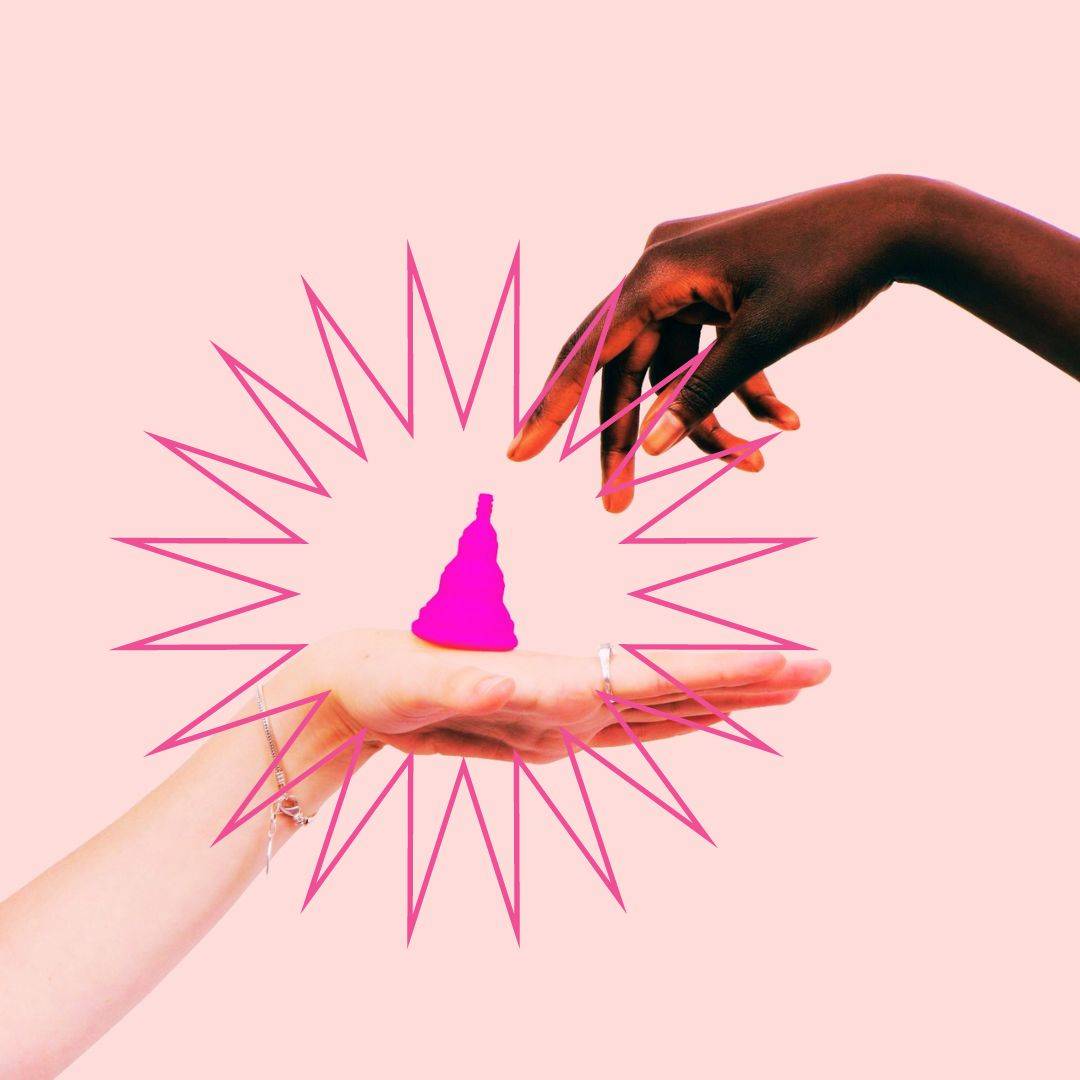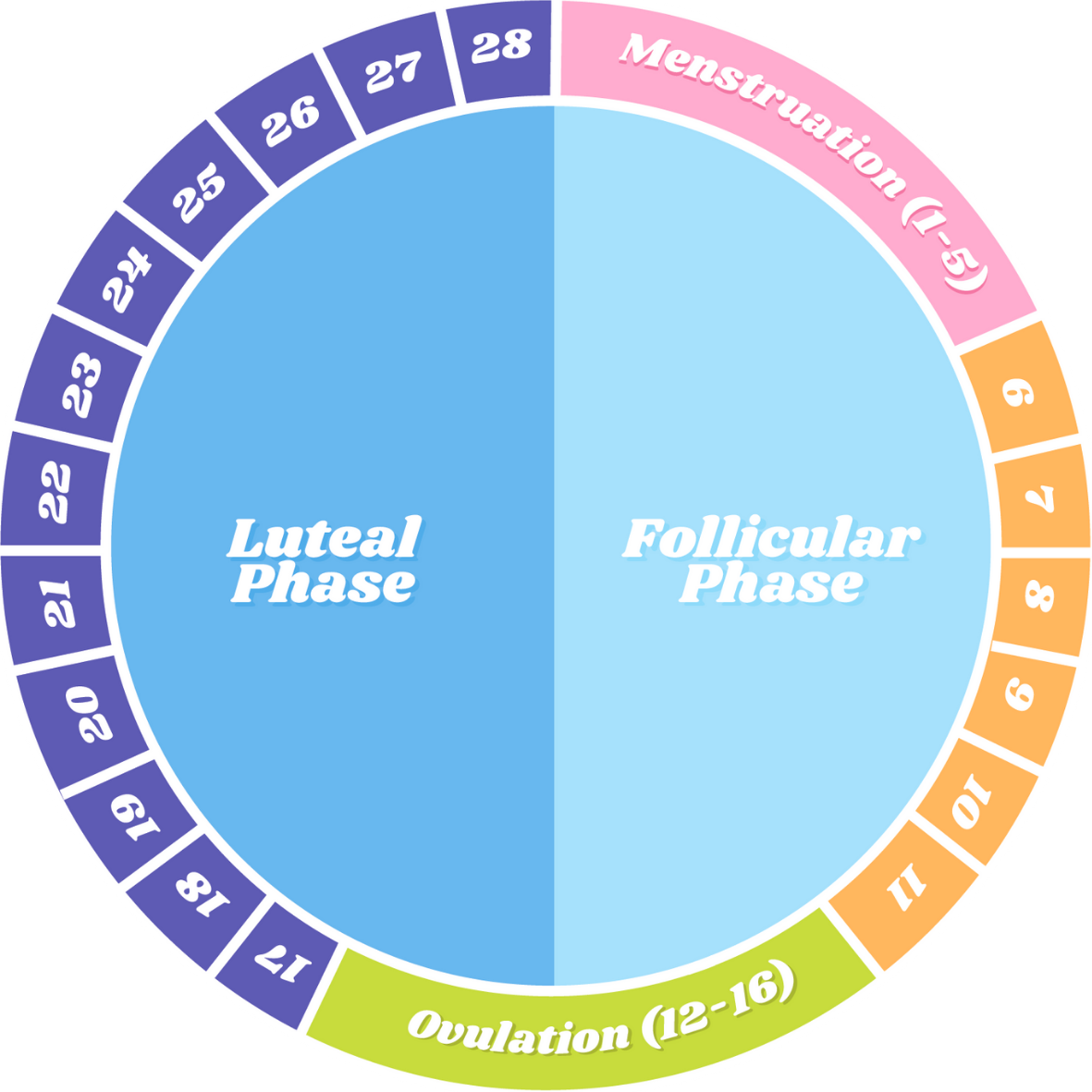A Beginner’s Guide To Learning Your Menstrual Cycle
A Beginner’s Guide To Learning Your Menstrual Cycle

As women and menstruators, we’re conditioned to believe that having a period is a painful, frustrating experience. Good news is—it doesn’t have to be! In fact, our goal is to empower you to take your cycle into your own hands. Knowledge is power. Get to know your flow and your flow will become a seamless part of your life. Let’s dive in.
Each month—during the years between puberty and menopause—a woman’s body goes through a number of changes. In part, to prepare for a possible pregnancy. This series of hormone-driven events is called the menstrual cycle.
During each menstrual cycle, an egg develops and is released from the ovaries. The lining of the uterus builds up. If conception doesn’t happen, the uterine lining sheds. Hello, period! And thus, the cycle starts again. The length of each phase can differ from woman to woman, and it can change over time.
4 Phases Of The Menstrual Cycle
As women and menstruators, our bodies work similarly to the seasons. Throughout the month, our energy rises and falls. At times, we feel more energized (think: spring and summer). Other times, we crave solitude (think: fall and winter). Just like the seasons, the menstrual cycle has four distinct phases: menstrual, follicular, ovulatory, and luteal.
- Menstrual (winter): the start of your period
- Follicular (spring): 7-10 days leading up to ovulation
- Ovulatory (summer): 3-5 days of ovulation
- Luteal (fall): 10-14 days before your period begins again
Keep in mind that everyone's cycle is different, and it is normal for lengths to vary. Your cycle may be longer or shorter than the phases listed above.
How Long Should My Menstrual Cycle Be?
This depends. For context, the length of your menstrual cycle is calculated from the first day of your period to the day before your next period starts. Your cycle might come every 21 to 35 days and last 3-7 days. If your cycle is longer or shorter, don’t fret. Irregular cycles aren’t uncommon, but that’s where everything from proper sleep, blood sugar balance, and seed cycling can help! Although variability is common, a very healthy cycle is 28-30 days with bleeding lasting approximately five days.

The Menstrual Phase
Phase one: your menstrual cycle begins. It starts when an egg—from the previous cycle—isn’t fertilized. Because pregnancy hasn’t taken place, estrogen and progesterone drop. The thickened lining of your uterus, which would support a pregnancy, is no longer needed. And so, it sheds. During your period, you release a combination of blood, mucus, and tissue from your uterus.
Foods to focus on include high-quality animal protein, avocado, leafy greens, ginger, and dark chocolate. This is when you incorporate your Nurture seeds.
The Follicular Phase
The follicular phase starts on the first day of your period (there is some overlap with the menstrual phase). It ends when you ovulate. During this phase, the follicle-stimulating hormone (FSH) stimulates your ovaries to produce around 5-20 small sacs. These are called follicles. Each follicle contains an immature egg. Only the healthiest egg will eventually mature (on rare occasions, you may have two eggs mature). The rest of the follicles are reabsorbed into the body. The maturing follicle sets off a surge in estrogen that thickens the lining of your uterus. This creates a nutrient-rich environment for a potential embryo to grow.
Foods to focus on during the follicular phase include green vegetables, nuts, seeds, eggs, fish, and legumes. This is also when you incorporate your Nurture seeds.
The Ovulatory Phase
Rising estrogen levels during the follicular phase trigger the pituitary gland to release luteinizing hormone (LH). This is what starts the process of ovulation. Ovulation is when your ovary releases a mature egg. The egg travels down the fallopian tube toward the uterus to be fertilized by sperm. The ovulation phase is the only time during your menstrual cycle when you can get pregnant. You can tell you’re ovulating by symptoms like these:
- A slight rise in basal body temperature
- More discharge / cervical fluid, with the texture of egg whites
Ovulation happens at around day 14 if you have a 28-day cycle—right in the middle of your menstrual cycle. It lasts about 24 hours. After a day, the egg will die or dissolve if it isn’t fertilized.
Foods to focus on during ovulation include asparagus, Brussels sprouts, chard, dandelion greens, okra, and spinach. Additionally, antioxidant-rich fruits, such as raspberries, strawberries, and coconut help support further detoxification of rising hormones in the liver.
The Luteal Phase
After the follicle releases its egg, it changes into the corpus luteum. This structure releases hormones—mainly progesterone, and some estrogen. The rise in hormones keeps your uterine lining thick and ready for a fertilized egg to implant.
If you do get pregnant, your body will produce human chorionic gonadotropin (hCG). It helps maintain the corpus luteum and keeps the uterine lining thick. If you don’t get pregnant, the corpus luteum will shrink away and be resorbed. This leads to decreased levels of estrogen and progesterone, which causes the onset of your period. The uterine lining will shed during your period. The luteal phase lasts for 11-17 days.
Foods to focus on during the luteal phase include lean protein, cauliflower, cucumber, squash, sesame seeds, spinach, and brown rice.
Why Is My Menstrual Cycle Irregular?
As mentioned, everyone’s menstrual cycle is different. Some people get their period at the same time each month. Others are moreirregular. Some women bleed more heavily or for a longer number of days than others. Your menstrual cycle can also change during certain times of your life. That said, it’s really helpful to track your periods. Eventually, the goal is to sync your cycle with your life. Any of these things can alter your menstrual cycle:
- Birth control. The birth control pill may make your periods shorter and lighter. While on some pills, you won’t get a period at all.
- Pregnancy. Your periods should stop during pregnancy. Missed periods are one of the most obvious first signs that you’re pregnant.
- Polycystic ovary syndrome (PCOS). This hormonal imbalance prevents an egg from developing normally in the ovaries. PCOS causes irregular menstrual cycles and missed periods.
- Uterine fibroids. These noncancerous growths in your uterus can make your periods longer and heavier than usual.
- Eating disorders. Anorexia, bulimia, and other eating disorders can disrupt your menstrual cycle and make your periods stop.
This is not an exhaustive list of reasons why a menstrual cycle can be irregular. If you sense your period is irregular (short, long, existent, or you spot between cycles, please reach out to your healthcare provider.
Master Your Menstrual Cycle With The Best Period Books
Below are our top five books for menstrual cycle healing, creativity, and soul nourishment. These are all great reads for the inner-autumn, pre-menstrual time period—aka, your luteal phase.
Yes, your menstrual cycle is a vital sign! In this book, you’ll learn what a normal cycle looks like, the best way to chart your cycle, natural methods for managing period pain / PMS, and so much more.
This is all about discovering that your power lies in the rhythm of your menstrual cycle. Through this book, you’ll connect with your body on a deeper level. In turn, finding healing, balance, and wholeness.
If you’re new to understanding your period and how the rest of your lifestyle impacts your cycle, read this.
Transform your periods using all-natural solutions like diet, vitamins, and hormone-balancing nutrition. This is an all-encompassing period repair manual.
This is a phenomenal resource for women and menstruators of all ages. This book is packed with well-researched and accurate information. By reading this, you’ll be surprised by how much we were never taught about the female body (and you’ll now be empowered to take care of it)
